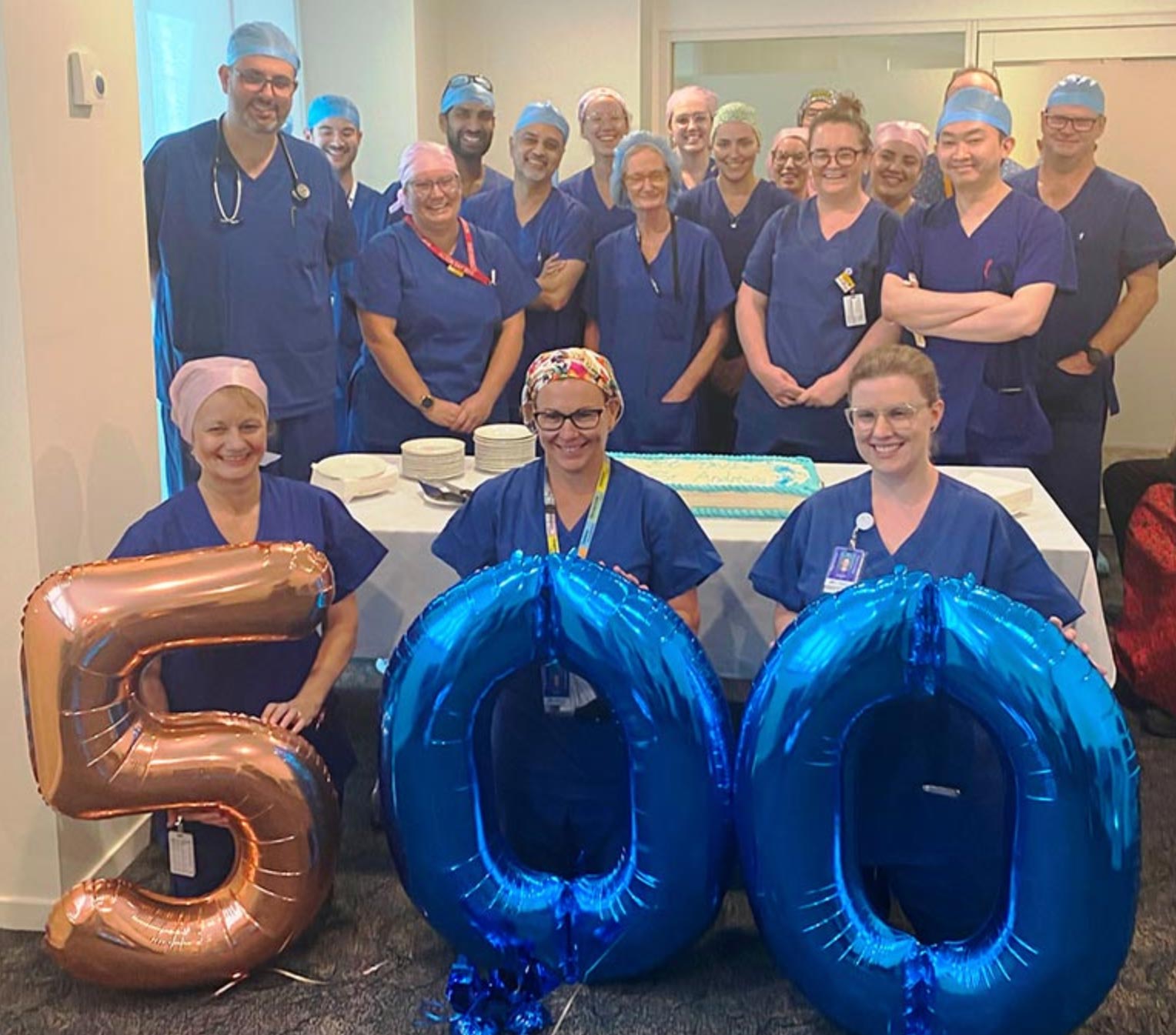
The St Andrew’s War Memorial Hospital team has now performed more than 500 Transcatheter Aortic Valve Implantation (TAVI) procedures, making it one of the most experienced teams in Australia.
For patients who have been diagnosed with aortic stenosis – a narrowing of the heart’s aortic valve – but are not well enough to have open-heart surgery, TAVI provides a better option.
Aortic stenosis prevents normal blood flow through the heart and is most often caused by age-related calcification, but can be caused by a birth defect, rheumatic fever or radiation therapy.
Cardiologists Drs Alex Incani and Karl Poon first performed the cutting edge and less invasive TAVI procedure in 2015 at St Andrew’s.
Fast forward five years to 2020, and the cardiology team have now performed more than 500 cases of the life-saving procedure; making them one of the most experienced centres in Australia, performing the highest volume of TAVIs in a private institution in Queensland, four years in a row.
Dr Incani said TAVI treatment had improved the quality and longevity of life for patients who would otherwise be deemed untreatable.
“We have developed a fantastic repetition of process which produces excellent outcomes for our patients,” Dr Incani said.
“Over the past five years we’ve been able to maximise the performance of the valve and the safety of the procedure for patients which is something Karl and I feel very strongly about,” he said.
“Every patient is different and we strive to achieve the best valve performance by analysing the CT in depth and adapting our procedure accordingly,” Dr Poon said.
Dr Poon is delighted with the TAVI milestone and acknowledges the teamwork it takes to achieve it.
“This wouldn’t have been possible without St Andrew’s generosity in funding the procedure initially and we are privileged to be part of it,” Dr Poon said.
“TAVI is perhaps the most transformative cardiac intervention in the past few decades for high risk patients.
“In May this year, TAVI was approved by the Therapeutic Goods Administration as an alternative to surgical aortic valve replacement in the majority of patients and this likely means in the very near future most aortic stenosis patients should be at least considered for TAVI if not treated with TAVI,” Dr Poon said.
At St Andrew’s, a multidisciplinary team approach combining the expertise of interventional cardiologists, cardiothoracic surgeons, echocardiologists, intensivists, anaesthetists and geriatricians, decides on the best treatment and whether TAVI would be an option.
The procedure is carried out under anaesthetic and involves a small incision in the groin or chest. A new valve is folded up and slipped into a catheter which is then put into a blood vessel. When the catheter reaches the base of the aorta a balloon is opened which inflates the valve. The old valve remains, pushed aside by the new.
St Andrew’s War Memorial Hospital Director of Medical Services Dr Michael Gillman said the milestone reflected the hospital’s commitment to innovation in cardiac care.
“We were the first private hospital in Queensland to carry out open heart surgery in 1985 and our commitment to provide the most advanced cardiac care to our patients continues today,” Dr Gillman said.